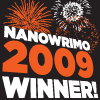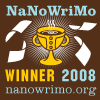
So today's Weekly Geeks is about examining a book (or books) which were published in your birth decade. Tell us about a book that came out in the decade you were born which you either loved or hated. Is is relevant to today? Is it a classic, or could it be? Give us a mini-review, or start a discussion about the book or books.
It’s a pity 1984 wasn’t actually published in 1984, because my immediate response to this topic was a total mental blank. The 1980s? What on earth have I read from the 1980s?
Wikipedia to the rescue!
More than I’d thought; enough to make it hard to choose a few favourites (and one not-so-favourite) to blog about. (Though none from my actual year of birth.)
Howl's Moving Castle by Diana Wynne Jones
I loved this book when I was younger. I still have fond memories now that I’m older. After struggling through assigned reading about girls working themselves up into knots over boys, friends, boyfriends, school, parents, etc, etc, it was a relief to discover Sophie. I haven’t read it in years - I borrowed it from the library, I never owned a copy - but she remains one of my all-time favourite heroines. She’s smart and fast-thinking, she doesn’t let a witch’s curse stand in her way, and she’s not about to take any nonsense from a vain wizard with a mobile home. Sophie’s had a lasting effect: I still prefer heroines who deal with whatever life throws at them with good humour (and a backbone) and without histrionics.
The Name of the Rose by Umberto Eco
It can be slow going, crammed as it is with historical and literary references, and philosophy, and theology, and probably other stuff I’ve forgotten. But it’s worth it, for two reasons. Take away the intellectual trappings, and it is at heart a clever whodunnit. At the heart of the whodunnit is the suppression of ideas deemed - by some - too dangerous for people to be allowed to access. Censorship is an issue as alive today as it was in the Middle Ages when the book is set; just witness the annual Banned Books Challenge. Or witness the possibly-soon-to-be-former government of the (democratic) country I’m blogging from. They plan - or planned - (there was an election on Saturday but we still don’t know whether they’re past or present tense) to impose mandatory ISP-level censorship of the internet. Without revealing precisely what will be filtered out. Or what leeway there’ll be for future governments to expand the filter without consulting or informing the people. Or how much it will slow everything down.
The Sunne in Splendour by Sharon Penman
Reading Shakespeare’s Richard III in Year 10 English was fun. Getting to team up with my friends and cram the whole thing into 10 minutes - and playing 11 different characters and getting killed with a stapler - was really fun. But it toed the Tudor line and portrayed Richard as a deformed monster. This is the perfect antidote; I was half in love with Richard by the time I finally emerged back into the 21st century. It’s the book that sealed my fascination with all things Wars of the Roses. I love reading doorstoppers, I love learning about history while I read, and I love books that make me think. This succeeds on all three counts. And as is sits on my bookshelf it’s a visible (and large) reminder that there is always more than one way to look at the past.
The Alchemist by Paulo Coelho
And this would be the one that I hated. From what I’ve heard of The Secret, the two sound similar: wish enough, and believe enough, and you’ll make it happen. There’s a line between hope and delusion, and it’s on the wrong side; and I can sum it up in one word. Bollocks.



























